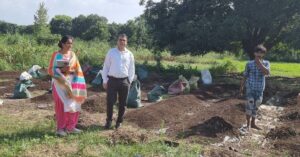Okra Chips to Chikoo Candies: Mom-Daughter Help Farmers Earn With Dehydrated Veggies
Keerthi Priya and her mother, Odapalli Vijaya Laxmi, started Nurture Fields to curb the problem of food wastage in India. Here’s how they are empowering women in Telangana with their initiative.
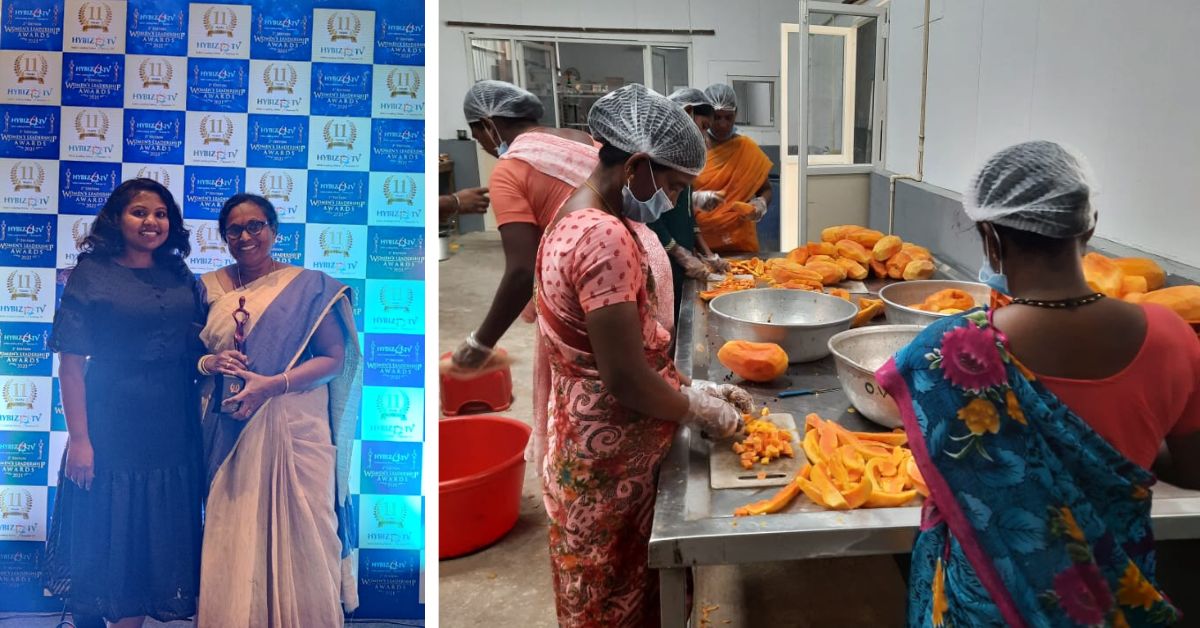
Back in 2017, Keerthi Priya from Hyderabad was working in Bengaluru. While she was juggling her corporate job responsibilities, living away from home came with its own challenges.
She would often miss home-cooked food and reminisce about the delicacies her mother would cook up back home.
In an attempt to curb Keerthi’s impulse to whip up some instant noodles on a daily basis, her mother, Odapalli Vijaya Laxmi, came up with an ingenious way of introducing vegetables back into her daughter’s diet.
“My mother started sending me dehydrated tomatoes and carrots. This simplified things a great deal as I could now simply add the veggies to my dish, heat it up, and have a meal ready,” says Keerthi.
Her friends also found the idea ingenious.
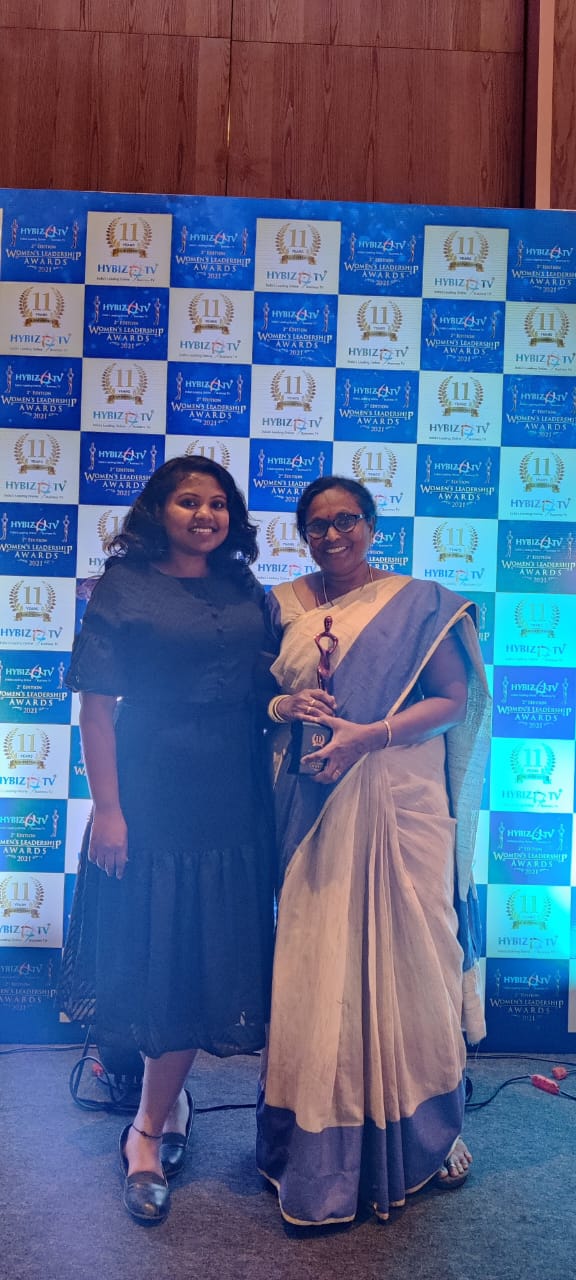
“It dawned on me that my mother’s hack was actually a method of food preservation. And if scaled in the right way, a solution like this could slowly put an end to the food wastage problem across borders,” says Keerthi.
Having spent a great deal of her time in farmlands, she was no stranger to the problems that farmers witnessed when the harvest wasn’t good or when the produce did not sell.
“I would visit my village in Telangana during my summer vacations, and my heart would break to see produce being dumped, sometimes even before harvesting. When I would return to the city and visit the mall, I would see packaged products advertising their long shelf lives. I wondered why the gap existed,” she recounts.
So, she thought of testing entrepreneurial waters and venturing into the space of food preservation.
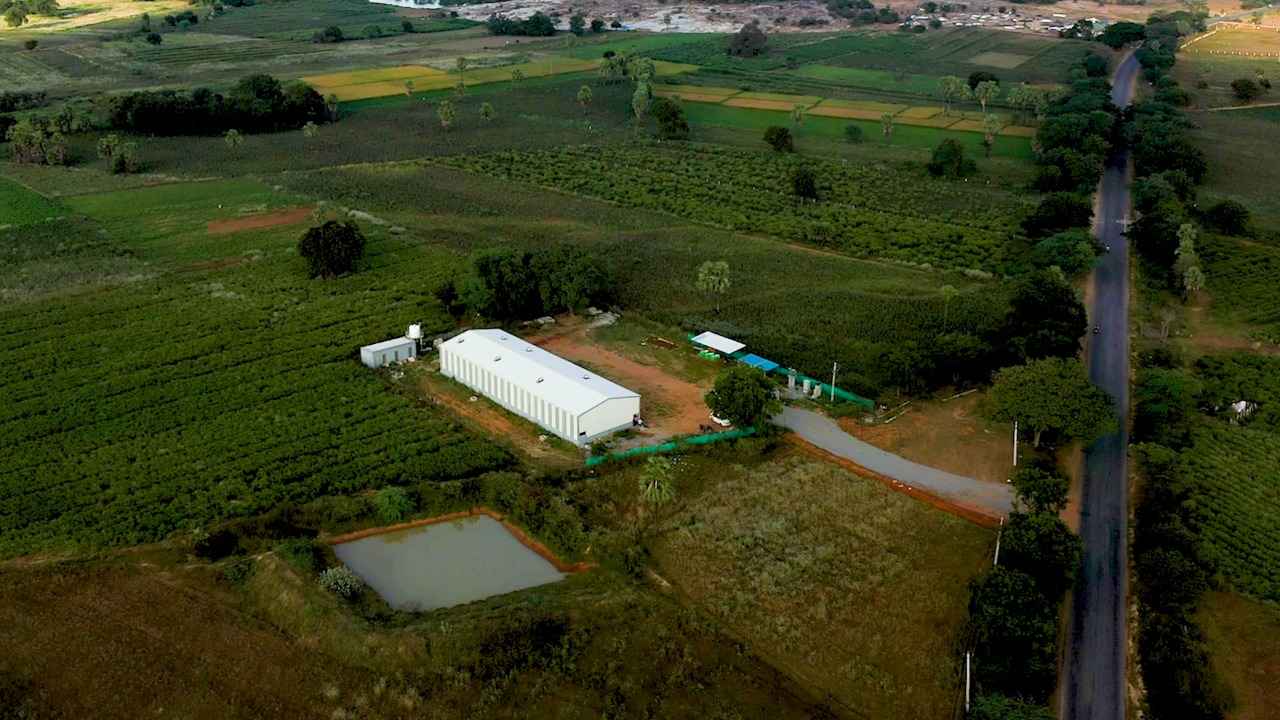
And finally, in 2022, Keerthi launched Nurture Fields and its retail arm Koh!. The motive was simple — to reduce food wastage whilst working with marginal farmers to increase their income.
But the journey to the launch came with a big learning curve.
Starting out with a solar dryer
In 2018, Keerthi quit her corporate job and returned to Telangana, filled with enthusiasm at the prospect of this new venture. She then made her first purchase — a solar dryer.
As she would soon learn, even with plenty of zeal, building a business was no easy task.
“The next few years were filled with trial and error. I began researching the domain of food preservation and worked with branding agencies in Mumbai to learn the intricacies of building a business. I even spent time with farmers in Telangana to understand the gaps in the supply chain,” she says.
In 2021, after gaining confidence and knowledge about the food preservation industry, the mother-daughter duo started Nurture Fields. Koh! was launched in April 2022.
Odapalli says, “The idea of Nurture Fields was to eliminate steps like planning for groceries, storing produce, and worrying about produce getting bad. We don’t wish to replace fresh produce, but simply give people an alternative.”
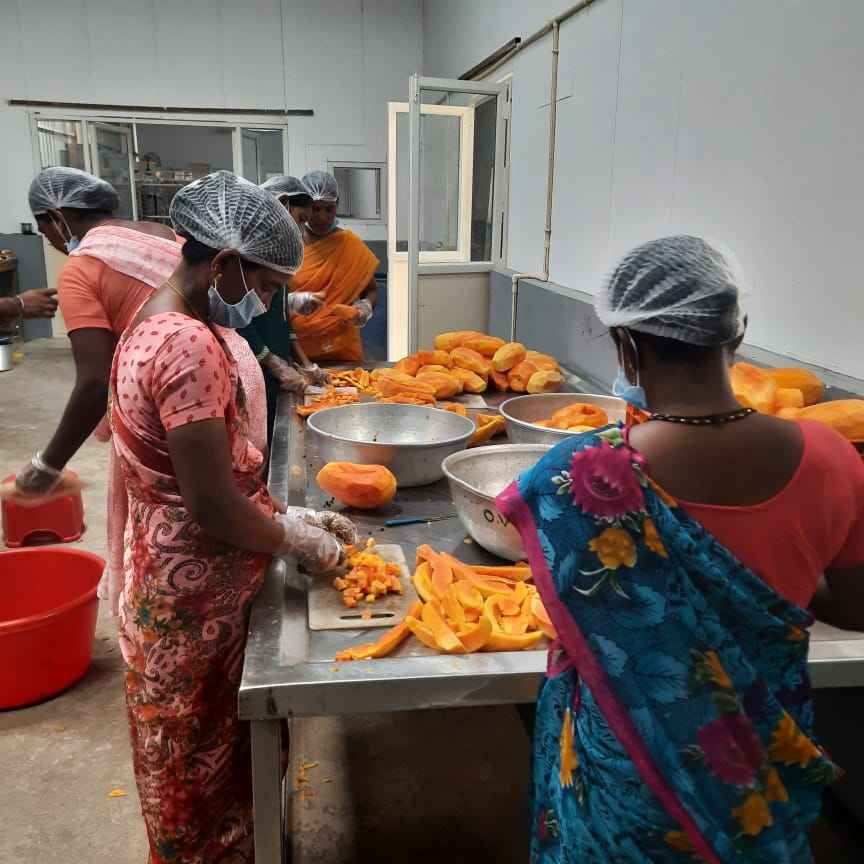
Today, Nurture Fields is a space that lies at the intersection of many things — empowering farmers by helping them earn more, enabling people to have produce that is quick and simple to add to their dishes, and curbing the food wastage scene.
The value of reducing wastage, Keerthi says, is also reflected in their demand-based cultivation model.
“We don’t produce in bulk. We have in-house agronomists who carry out soil analysis, studies on biopesticides, etc, as well as research scientists who conduct intensive studies on the quality of produce.”
She adds that the model has been designed to keep the farmers “worry-free”.
“We work with a team of 15 farmers from Thonda, Thirumalgiri, Mamidala, and Kotamarthi villages of Telangana. They grew paddy and cotton, which would disrupt soil fertility and not give good profits. But now, they have shifted to ginger, beetroot, carrots, mango, chikoo, spinach, papaya, and zucchini,” says Keerthi.
“Our agricultural officers and agronomists guide the farmers right from soil preparation to harvest. Once the harvest is done, we collect the produce from the fields and bring it to the factory. The produce is processed here, and it is dehydrated and turned into powders,” she adds.
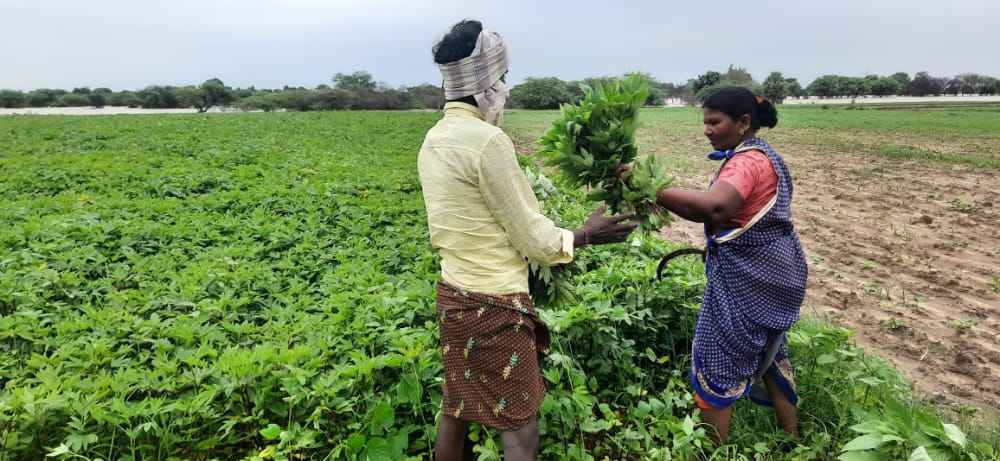
Empowering farmers and local women
Setting up a system of this sort has been refreshing, says Keerthi. She adds that the farmers would previously get Rs 1 to Rs 5 per kg of tomatoes, but now they get a consistent Rs 7 per kg, no matter what the turnover is that month.
“For instance, a farmer cultivating on one acre of land earns Rs 10,000 to Rs 15,000 a month,” she says.
Kavitha, a farmer from Kotamarthi village, has been farming for six years since her divorce. She says that she learned about Nurture Fields two years ago.
“We were promised that they would help farmers like us, and they have kept their promise. My initial days with them were spent learning about organic modes of cultivation. I remember growing okra (lady’s finger) on half an acre and tomato on the other half using natural fertilisers. Not only were the results great, but I also received guidance from start to end about any farming-related queries I had,” she says.
Keerthi says that while the farmers trust them now, it has been a slow process. “It was tough convincing them to transition from their old ways. But today, they are happy to be reaping the success of their efforts,” she says.
In addition to empowering farmers, Nurture Fields also focuses on its women’s team, which is managed and engaged by Odapalli.
“Once we started the production unit that spans 6,000 sq ft, I thought of motivating the women from the nearby villages of Telangana to come and work here. Today, we have 15 such women associated with us, and we provide them with access to washrooms, transport facilities, etc,” she says.
Among them is Shailaja, who says her time spent at the production unit is one of the happiest parts of her day.
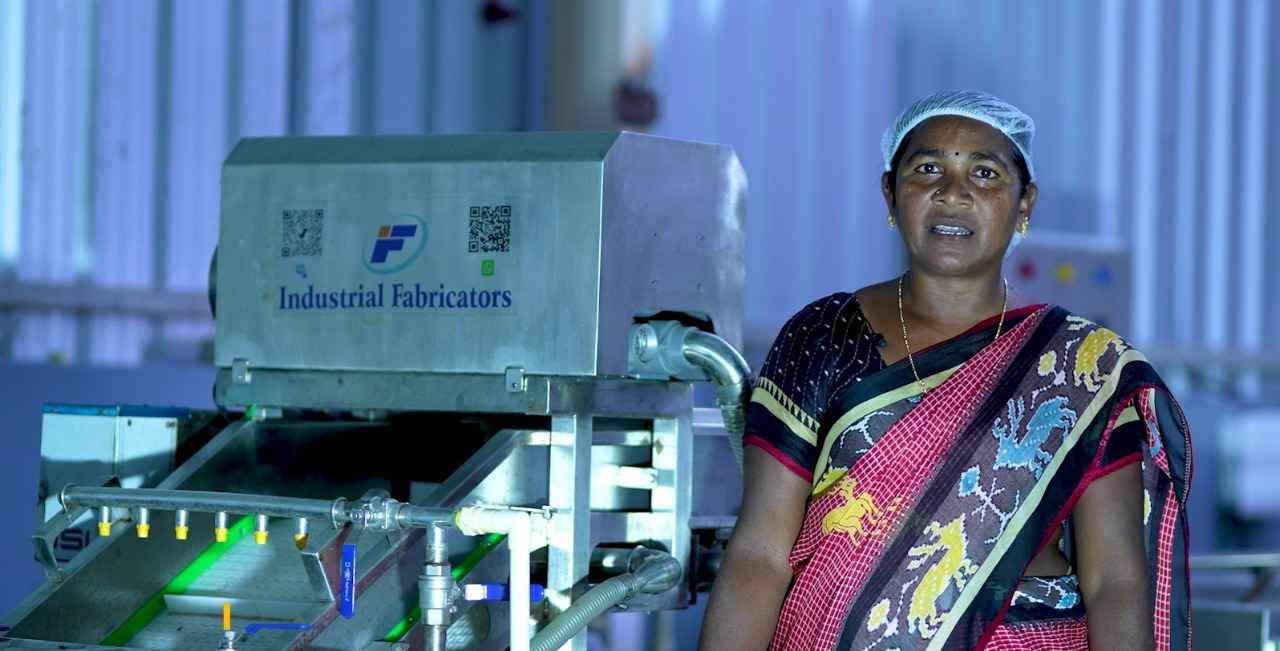
She says, “I never really knew much of farming, but I was devoted and tried my hand at it. However, when I got the opportunity to work in an indoor environment, I was happy. I spend my time cleaning the vegetables and then processing them. It is fun! I even brought along two friends of mine to work here.”
As Keerthi and her mother take stock of their labour of love, they say the dream is coming to be a reality.
Koh!’s food products are bringing a smile to Indian homes with their spiced okra chips, candied chikoo, powdered ginger root, dehydrated carrot cubes, and dehydrated vegetable combo packs for easy cooking.
“We have fulfilled 2,000 orders till date, have served over 1,600 customers, and ship pan India,” says Keerthi.
Thinking back to how it all started, Odapalli says she never imagined a simple trick of sending her daughter dehydrated tomatoes would one day scale into a business.
“My daughter gave me the strength to put my ideas forward, and today, I’m grateful for that.” If you found our stories insightful, informative, or even just enjoyable, we invite you to consider making a voluntary payment to support the work we do at The Better India. Your contribution helps us continue producing quality content that educates, inspires, and drives positive change. Choose one of the payment options below for your contribution- By paying for the stories you value, you directly contribute to sustaining our efforts focused on making a difference in the world. Together, let’s ensure that impactful stories continue to be told and shared, enriching lives and communities alike. Thank you for your support. Here are some frequently asked questions you might find helpful to know why you are contributing?

You can check out the products by Koh!, here.
Edited by Pranita Bhat
This story made me
-
97
-
121
-
89
-
167







